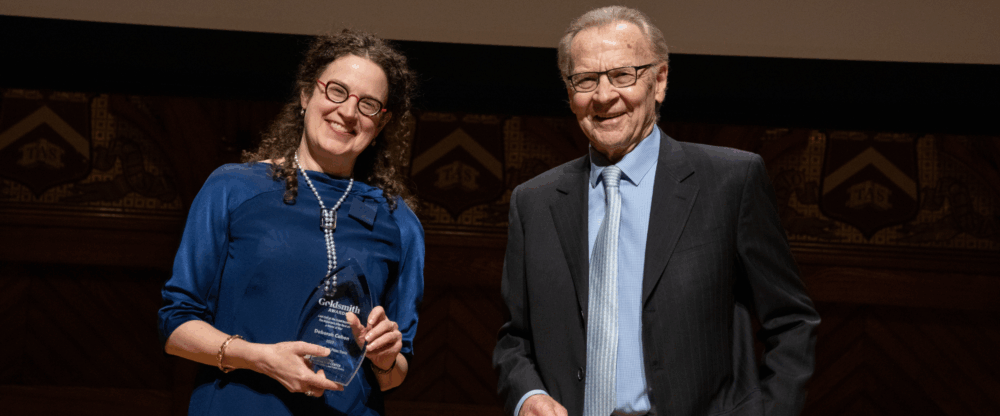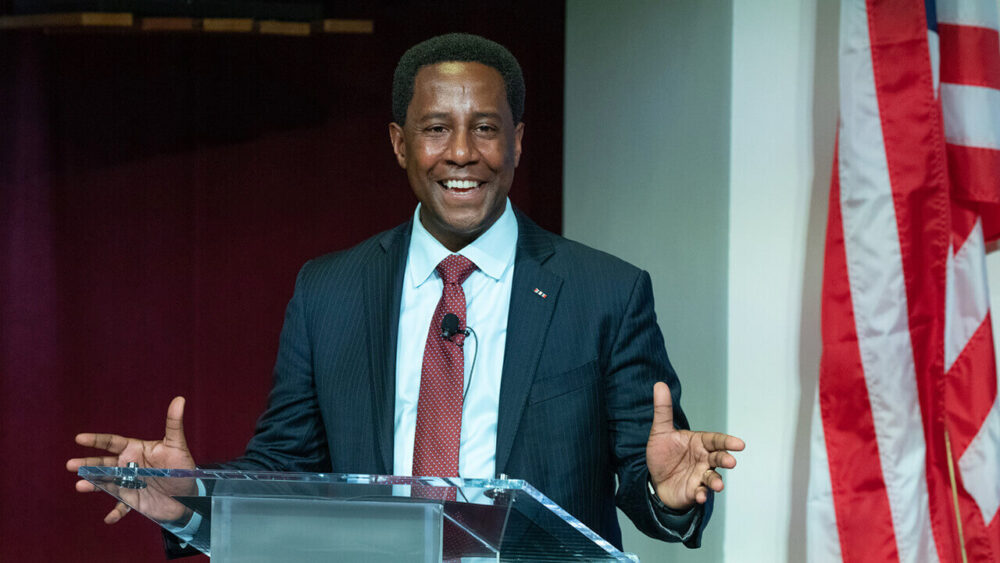
Nominations open for the 2026 Goldsmith Awards
Newsletter
Friends of the Shorenstein Center,
This entire election cycle—and its outcome—raises many questions about the state of media and politics in the United States. How did the polls get it so wrong? Was the media too soft or too hard on particular candidates? How do we handle a foreign government hacking and leaking information to impact the electoral outcome? What role did social networks play, from narrow-casting to spreading fake news? What is to become of truth-telling and fact-checking in our politics and our media?
But right now there is one clear conclusion from this election: there is no middle:
I wrote this past summer that “It is gradually dawning on the Acela corridor that their consensus about the state of the country is not widely shared outside of Manhattan or Washington, D.C.” But it is not clear to me that even the election of Donald Trump will lead to the change the American people want and expect.
In moments like this the poet Thomas Hardy comes to mind. In his lifetime he saw the invention of electricity, the steam engine, the telephone, and the machine gun. And in 1899—right before the turn of the century—he had a grim premonition of where all of this technology was taking him, and he wrote the poem “The Darkling Thrush.” I work here at the Kennedy School because our world faces terrible challenges even without President Trump. But the students are my “Darkling Thrush”—they give me hope for the future my children will inherit, and it is the knowledge that we might shape the lives of a handful of students who will go on to change the world—it is that knowledge that animates me and gives me the hope to get up and tackle the great challenges ahead. So read this poem—read it out loud, even if just to yourself, for strength and hope to tackle the challenges the nation faces.
With great respect and affection,
Nicco Mele
Director, Shorenstein Center
For President Trump, the Road Ahead. Harvard analysts, including Pippa Norris of HKS and Jill Abramson, ponder changes across the American and global landscapes.
Crowdsourcing, Prizes, Moonshots, and More: Bringing New Ideas and Tech into Government, by Nick Sinai, Adjunct Lecturer in Public Policy.
The Media Didn’t Want to Believe Trump Could Win. So They Looked the Other Way. From The Washington Post.
A ‘Dewey Defeats Truman’ Lesson for the Digital Age, from The New York Times.
How the Media Missed President Trump, from Poynter.
Want to Know What America’s Thinking? Try Asking, from The New York Times.
Why 2016 Election Polls Missed Their Mark, from Pew Research Center.
What Went Wrong with the 2016 Polls? From The Atlantic.
In Defense of Polling, from Poynter.
After Trump’s Win, Even Some in Silicon Valley Wonder: Has Facebook Grown Too Influential? From the Los Angeles Times.
The Forces That Drove This Election’s Media Failure Are Likely to Get Worse, from Nieman Lab.
A Donald Trump Presidency Presents a Grave Threat to the Press, from Huffington Post.
What Trump Could (and Couldn’t) Do to Restrict Press Freedom If Elected, from Columbia Journalism Review.
How Can Journalists Protect Themselves during a Trump Administration? From The Atlantic.
Trump Won. The Media Lost. What Next? From NPR.
Fallout from Trump’s War on the Media Will Linger after Election, from CNN.
Here’s to the Return of the Journalist as Malcontent, from Columbia Journalism Review.
Sign up to receive Media and Politics Must Reads in your inbox each week. Also connect with us on Twitter and Facebook for more updates.


Center News

Center News